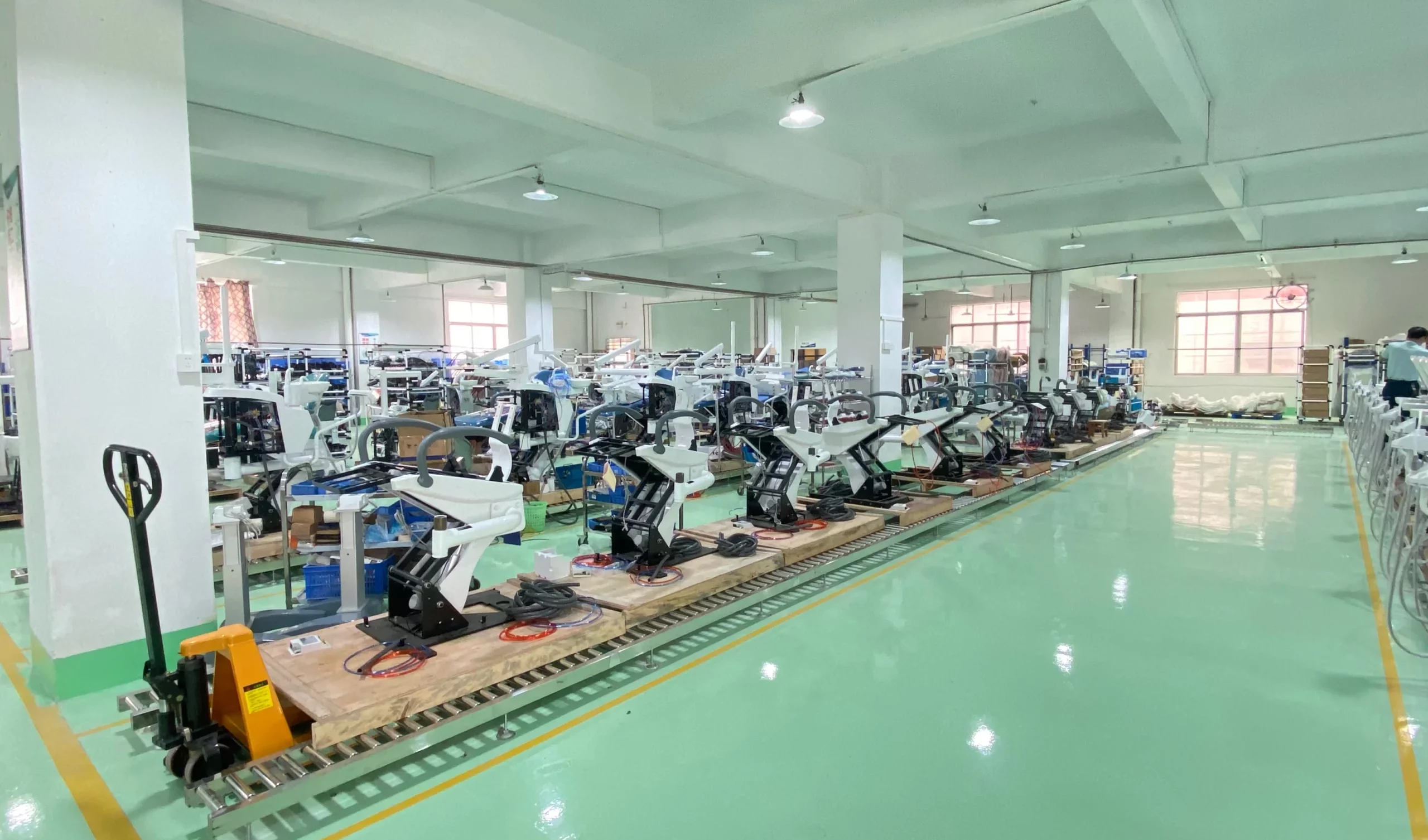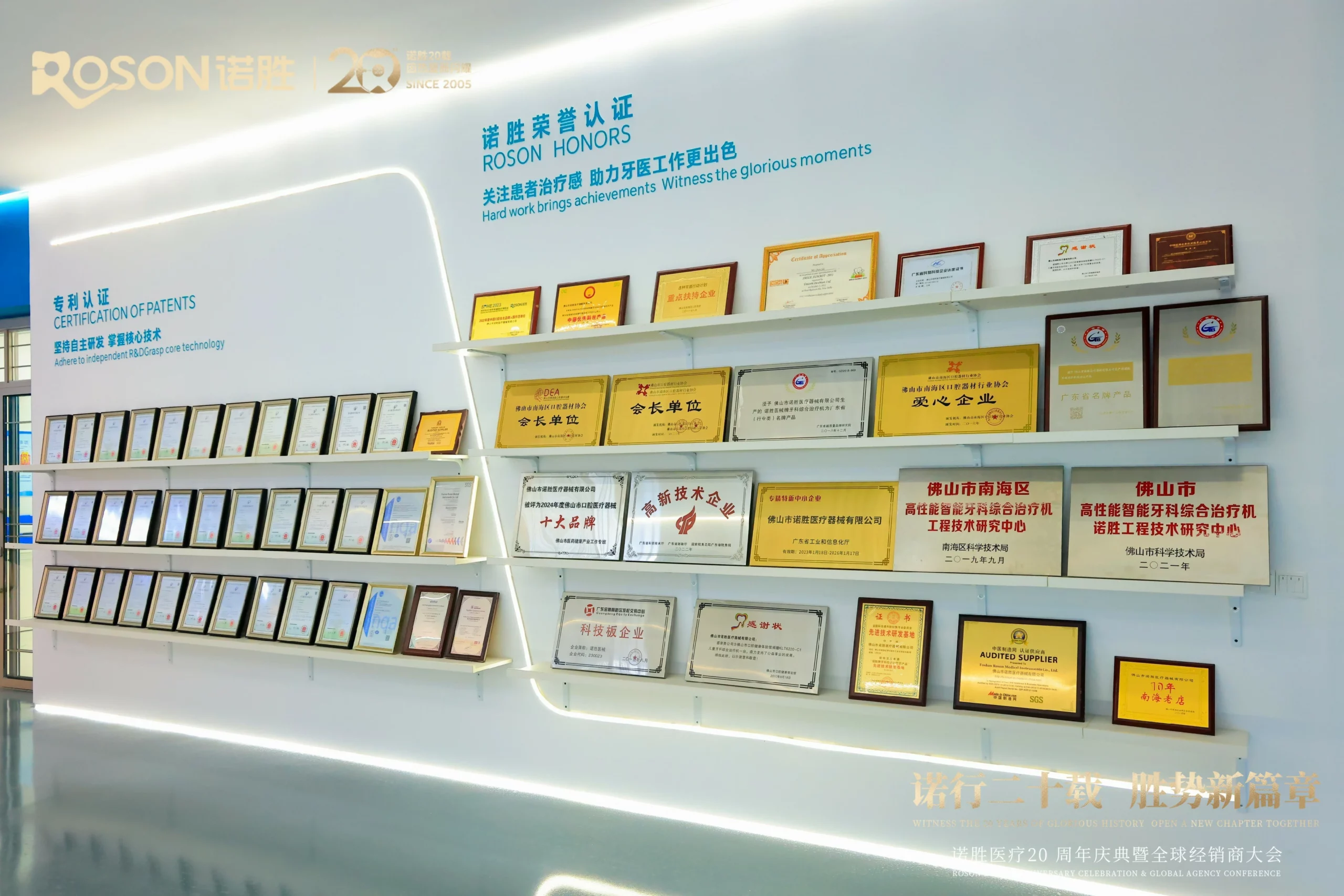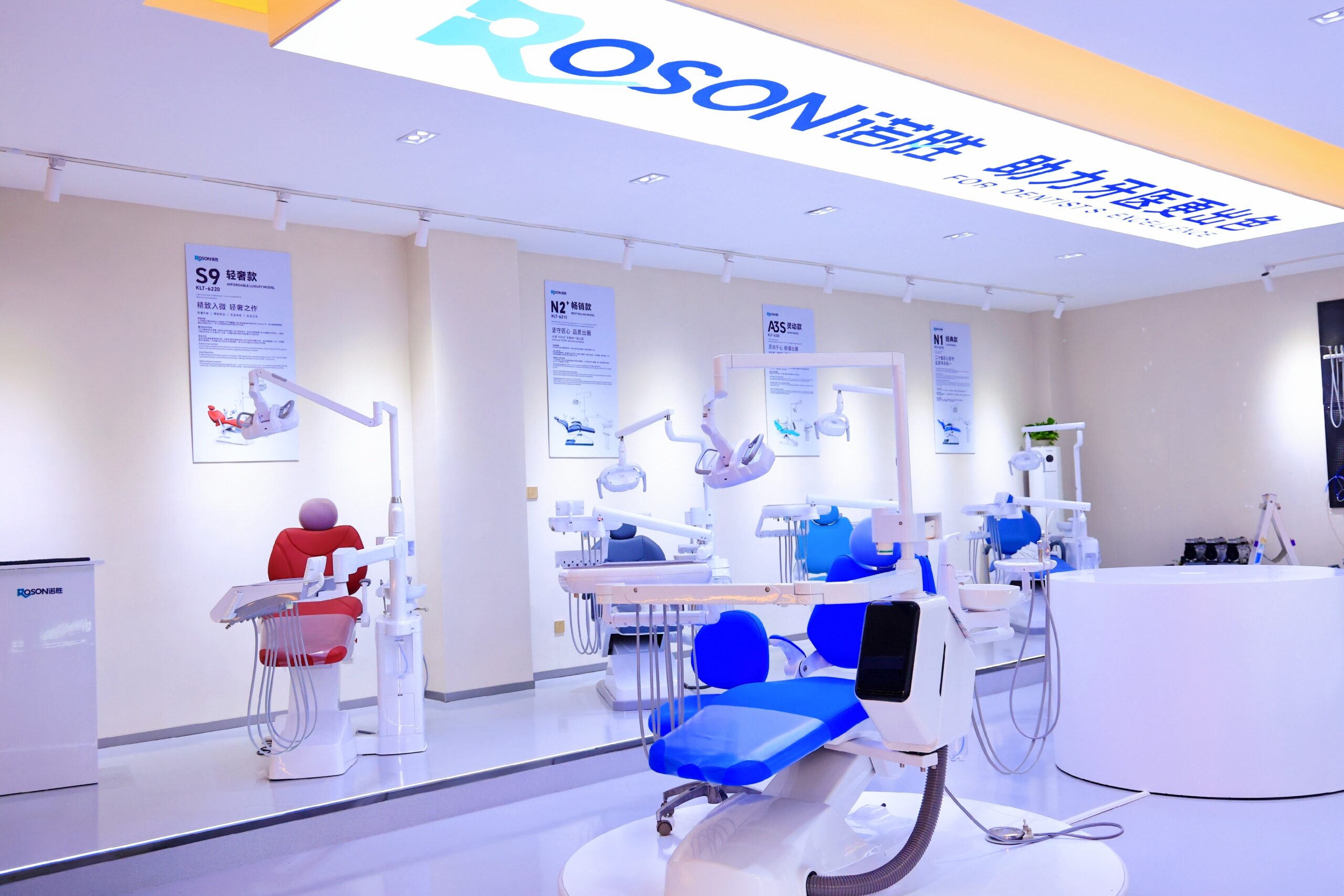As we embark on this journey toward the future of dentistry, the trends shaping dental chairs underscore a commitment to technological innovation, environmental consciousness, and patient-centric care. Manufacturers like ROSON Medical Equipment Co., Ltd are not merely producing dental chairs; they are crafting sophisticated instruments that align with the evolving landscape of dental practices. The smart, sustainable, and customizable dental chairs on the horizon not only promise enhanced clinical capabilities but also signify a progressive shift towards a more holistic and responsible approach to oral healthcare.
I. Introduction — What is a dental chair called?
A. Importance of the Dental Chair
What is a dental chair called? The dental chair, a seemingly unassuming piece of furniture, plays a pivotal role in the realm of dentistry. It is not merely a seat; it is the throne upon which oral health is examined, diagnosed, and treated. The significance of a dental chair extends beyond its physical structure, impacting both the dentist and the patient.
B. Role in Enhancing Patient Experience
Beyond the clinical aspects, the dental chair contributes significantly to the patient’s overall experience. The comfort it provides, coupled with advanced features, can ease anxieties and contribute to a positive perception of dental visits.

II. The Anatomy of a Dental Chair
A. Components and Features
1. Seat and Backrest: The foundation of a dental chair lies in its seat and backrest. The ergonomic design ensures patient comfort during extended procedures.
2. Armrests: Strategically positioned armrests offer support and stability, minimizing patient fatigue.
3. Foot Controls: Conveniently located foot controls empower the dentist to adjust the chair’s position without interrupting the procedure, ensuring seamless workflow.
4. Headrest: The adjustable headrest is a key element, providing proper head and neck support, allowing the dentist optimal access to the oral cavity.
B. Materials Used in Dental Chair Construction
1. Upholstery: Typically made from high-quality, medical-grade materials, the upholstery ensures durability, easy cleaning, and patient comfort.
2. Frame: The frame, often crafted from robust materials like stainless steel, provides structural integrity, ensuring the chair’s stability during various dental procedures.
III. Evolution of Dental Chairs
A. Historical Perspective
1. Early Dental Chairs: Early dental chairs were rudimentary, resembling more of a makeshift seat than a sophisticated medical apparatus. These designs lacked the comfort and adjustability crucial for modern dental practices.
2. Technological Advancements: Over the years, dental chairs have witnessed remarkable advancements. Hydraulic systems, introduced in the mid-20th century, marked a turning point, allowing for more precise positioning.
B. Modern Innovations
1. Ergonomics: Contemporary dental chairs prioritize ergonomics, optimizing the dentist’s posture and minimizing musculoskeletal strain during prolonged procedures.
2. Integration with Technology: Modern dental chairs seamlessly integrate with cutting-edge technologies. Touchscreen controls, digital imaging capabilities, and computer-aided design (CAD) contribute to enhanced diagnostic precision and treatment planning.
IV. The Significance of Ergonomics
A. Impact on Dentists
1. Prevention of Musculoskeletal Issues: The incorporation of ergonomic principles in dental chair design directly addresses the physical well-being of dentists. Adjustable features promote proper posture, reducing the risk of musculoskeletal issues.
2. Improved Workflow: Ergonomic dental chairs enhance the dentist’s efficiency and productivity by providing easy access to instruments and minimizing unnecessary movements.
B. Benefits for Patients
1. Comfort: Patient comfort is paramount in dentistry. Ergonomic design ensures that patients can relax during procedures, fostering a positive experience and encouraging regular dental visits.
2. Accessibility: The flexibility of modern dental chairs accommodates patients of various sizes and mobility levels, ensuring accessibility for all.
V. Technology Integration in Dental Chairs
A. Digital Imaging Capabilities
Modern dental chairs, such as those manufactured by ROSON Medical Equipment Co., Ltd, often come equipped with digital imaging capabilities. This allows for real-time visualizations, aiding in precise diagnostics and treatment planning.
B. Computer-Aided Design (CAD) Integration
Integration with CAD technology enables dentists to create digital models of dental restorations directly from the dental chair. This streamlines the design process, offering convenience and efficiency.
C. Patient Education Features
Some dental chairs feature built-in screens for patient education. This allows dentists to visually explain procedures and treatment plans, improving patient understanding and collaboration in their oral health journey.
VI. Trends Shaping the Future of Dental Chairs
A. Smart Dental Chairs
What is a dental chair called? As we step into the future, dental chairs are no longer just pieces of furniture but are evolving into smart devices. Manufacturers like ROSON Medical Equipment Co., Ltd are at the forefront of integrating intelligent technologies into dental chairs. These smart chairs may include features such as AI-assisted diagnostics, automated patient records, and real-time monitoring of vital signs. This not only enhances the efficiency of dental procedures but also contributes to a more connected and digitized dental practice.
B. Sustainable Materials and Design
The dental industry is increasingly embracing sustainability, and dental chairs are no exception. Manufacturers are now prioritizing the use of eco-friendly materials and adopting sustainable design practices. ROSON Medical Equipment Co., Ltd is leading the charge by incorporating recycled and biodegradable materials in their chair construction. Sustainable dental chairs not only reduce the environmental footprint of dental practices but also resonate with the growing awareness of ecological responsibility among both practitioners and patients.
C. Customization for Patient Preferences
Recognizing the diversity of patient needs and preferences, the future of dental chairs lies in customization. Manufacturers like ROSON Medical Equipment Co., Ltd are offering chairs with adjustable settings that cater to individual patient comfort. From personalized seating positions to temperature controls, these customizable features not only enhance the patient experience but also contribute to a more patient-centric approach to dental care.
VII. Maintenance and Care of Dental Chairs
A. Regular Inspections
While the advancements in dental chair technology are exciting, it’s crucial to ensure that these marvels of modern dentistry are well-maintained. Regular inspections play a vital role in extending the lifespan of dental chairs. Dental practitioners, with support from manufacturers like ROSON Medical Equipment Co., Ltd, should implement routine checks for hydraulic systems, electrical components, and overall structural integrity. Proactive maintenance can prevent unexpected malfunctions and ensure a seamless dental practice.
B. Cleaning and Disinfection Guidelines
In the current global landscape, hygiene and infection control are paramount. Dental chairs are high-touch surfaces that demand stringent cleaning protocols. Manufacturers like ROSON Medical Equipment Co., Ltd provide specific guidelines for cleaning and disinfecting their chairs. Dental practitioners must adhere to these guidelines, utilizing recommended disinfectants and cleaning techniques to maintain a sterile environment. Regular cleaning not only safeguards the health of both practitioners and patients but also prolongs the life of the dental chair.
Conclusion
What is a dental chair called? The dental chair, evolving from its humble origins, has become a sophisticated and integral part of the dental practice. Its role extends beyond providing physical support during procedures; it contributes to the overall well-being of both dentists and patients. With companies like ROSON Medical Equipment Co., Ltd leading the charge in innovative designs, the future promises even more advancements, ensuring that the throne of dentistry continues to enhance the oral health experience for all.









